NHS IT - something to celebrate?
To mark the 60th anniversary of the NHS, IT PRO examines the massive IT overhaul at the health services giant.
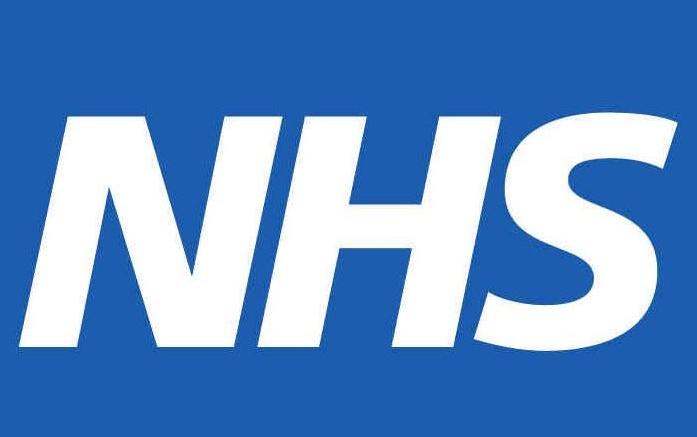

That said, last week an unencrypted laptop was swiped from a hospital in Colchester, holding details of tens of thousands of patients who likely don't agree that NHS security is strong enough or that chief execs are paying attention.
What's next for healthcare IT?
Even if the NPfIT manages to wrap up by 2014, there's always more work to do.
Indeed, this programme is just the beginning of plans to weave IT into the healthcare system, with telemedicine, home monitoring and other innovations the next step of the process. CfH's Denwood said that after the NPfIT ends, he "could see the programme continuing in a different guise with a focus on telemedicine."
CfH has a clinician working full-time trialling telemedicine technology. Using the N3 network, the clinician has been sending PACS cardiology images from Kent to researchers at Kings College in London for analysis. Before the network was set up, such scans would be sent by courier to specialists and take days for a response. "Now they're sent over and you get feedback in half an hour," Denwood said. "That's telemedicine at work."
They're also piloting home monitoring devices, which would help patients monitor long-term conditions such as blood pressure or diabetes, and upload the data directly to their digitised record see how nicely it all fits together?
CfH are also looking into making tech more health-friendly. One example is MRSA-resistant, easily-cleaned keyboards. The NHS has already ordered 1 million worth of the devices, and will likely look for similar innovations. "I can see us doing more and more around resistant devices," Denwood said.
Get the ITPro daily newsletter
Sign up today and you will receive a free copy of our Future Focus 2025 report - the leading guidance on AI, cybersecurity and other IT challenges as per 700+ senior executives
Patients should also get used to seeing doctors and nurses walking the halls with PDAs and other mobile devices. While there's no national roll-out currently planned, products are currently being tested to see which best fit with clinicians' working practices, Denwood said.
Indeed, given the delays in the first few phases of the NPfIT, don't expect to see wide-spread rollout of any such blue-sky tech soon.
Worth the pain?
Billions of pounds in cost, hours of work (and frustration), ruined careers and reputations, and very negative press but will it all be worth it? Was there any alternative?
There's no argument that the NHS needed this upgrade. IT is key in so many areas, and healthcare is one place technology can be used to great benefit.
But the management of the system has so far been poor. Suppliers seem to get away without delivering proper products on time and simply walk away when challenged by CfH. The systems - the products and the database - being put in place may not be the best options; alternatives appear, possibly in hindsight, much better.
Despite the problems, the programme needs to continue, if only bring the NHS up-to-speed with other industries when it comes to computers. "We hope we'll get to a point with clinicians where IT we provide becomes as common as ATM machines in everyday ues," Denwood said. "Part of it is cultural and part of it is people needing a bit of experience it."
Could the NPfIT be run more smoothly? Of course. Should someone have to answer for delays, and confusion surrounding suppliers? Of course. And will are some aspects so deeply flawed they may eventually need to be completely replaced? Probably.
But do we need this programme to be a success? Most definitely. Hopefully the NHS and CfH take the 60th anniversary as a time to look back at their mistakes and fix them going forward, otherwise the NPfIT will be seen as a definitive failure by the time the 70th anniversary rolls around.
Freelance journalist Nicole Kobie first started writing for ITPro in 2007, with bylines in New Scientist, Wired, PC Pro and many more.
Nicole the author of a book about the history of technology, The Long History of the Future.
-
 Should AI PCs be part of your next hardware refresh?
Should AI PCs be part of your next hardware refresh?AI PCs are fast becoming a business staple and a surefire way to future-proof your business
By Bobby Hellard
-
 Westcon-Comstor and Vectra AI launch brace of new channel initiatives
Westcon-Comstor and Vectra AI launch brace of new channel initiativesNews Westcon-Comstor and Vectra AI have announced the launch of two new channel growth initiatives focused on the managed security service provider (MSSP) space and AWS Marketplace.
By Daniel Todd
-
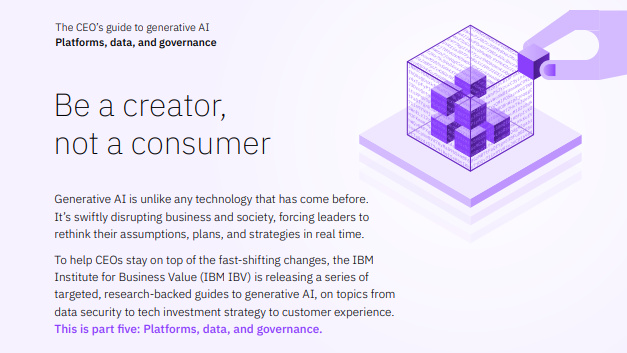 The CEO's guide to generative AI: Be a creator, not a consumer
The CEO's guide to generative AI: Be a creator, not a consumerWhitepaper Innovate your business model with modern IT architecture, and the principles of trustworthy AI
By ITPro
-
 Building a strong business case for GRC automation
Building a strong business case for GRC automationwhitepaper Successfully implement an innovative governance, risk & compliance management platform
By ITPro
-
 Saving the NHS with tech: 5G healthcare and virtual wards
Saving the NHS with tech: 5G healthcare and virtual wardsCase study Can technology cure Britain’s ailing healthcare service? Our three-part series examines how technology can lift Britain’s healthcare system out of its current crisis
By Barry Collins
-
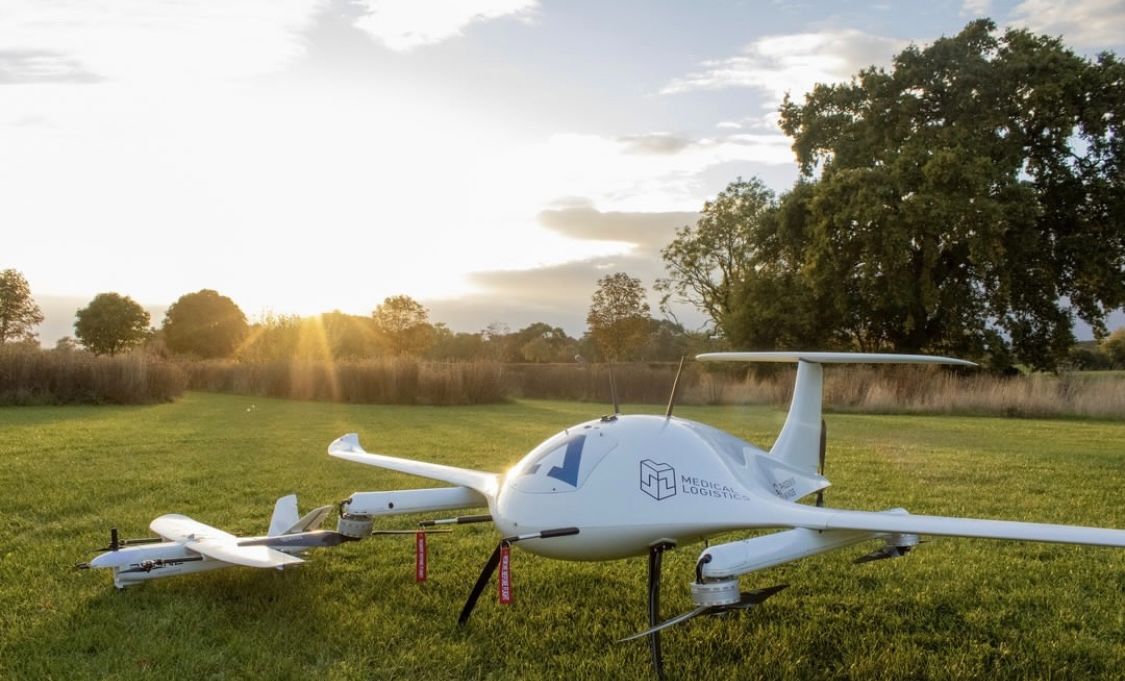 Saving the NHS with tech: Making blood deliveries by drone
Saving the NHS with tech: Making blood deliveries by droneCase Study Can technology cure Britain’s ailing healthcare service? Our three-part series examines how technology can lift Britain’s healthcare system out of its current crisis
By Barry Collins
-
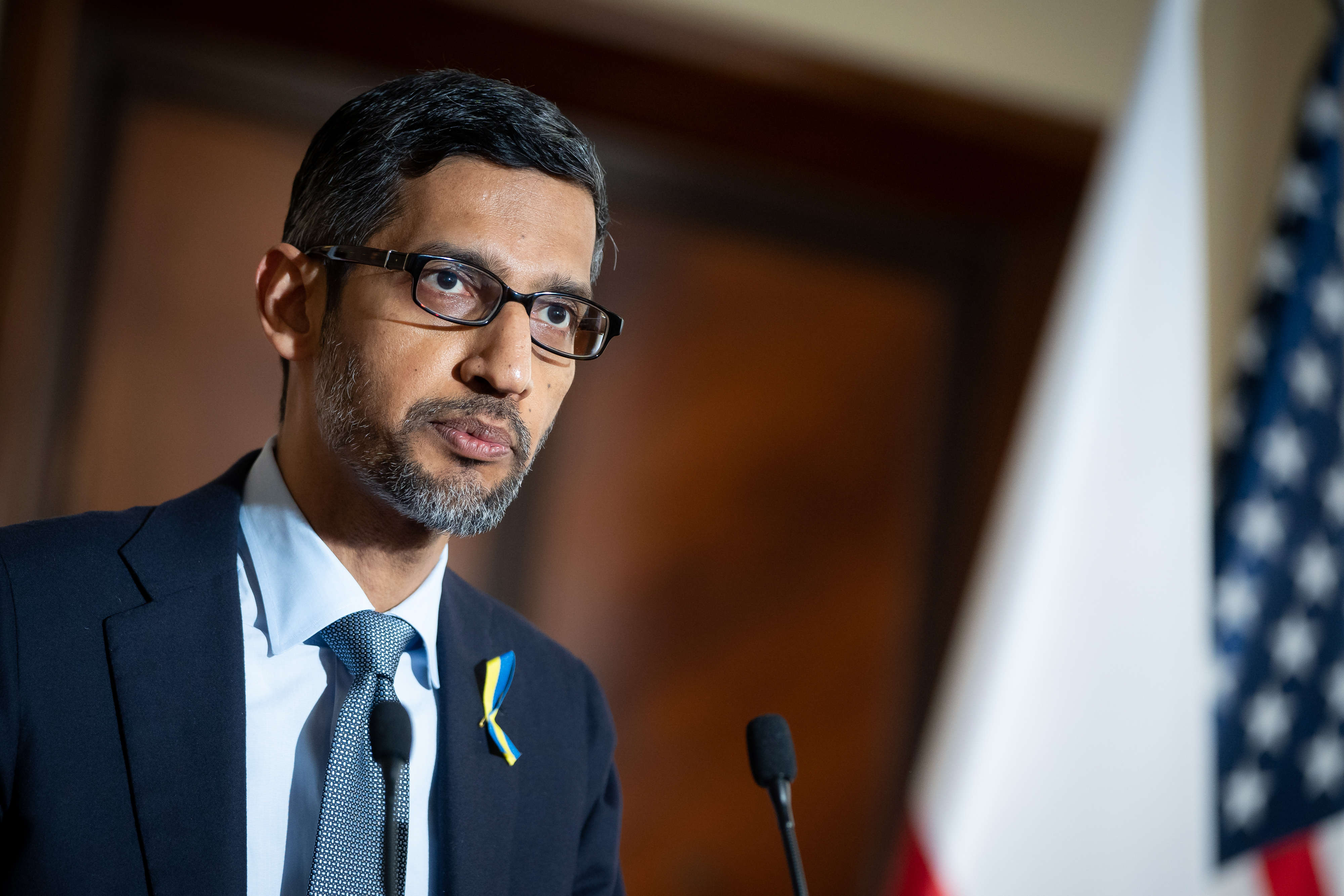 Sundar Pichai: AI keeps me up at night
Sundar Pichai: AI keeps me up at nightNews The Google chief warned that recent AI developments will have a profound impact on society
By Ross Kelly
-
 ChatGPT privacy flaw exposes users’ chatbot interactions
ChatGPT privacy flaw exposes users’ chatbot interactionsNews OpenAI has not expanded on the flaw in detail, nor indicated its reach
By Rory Bathgate
-
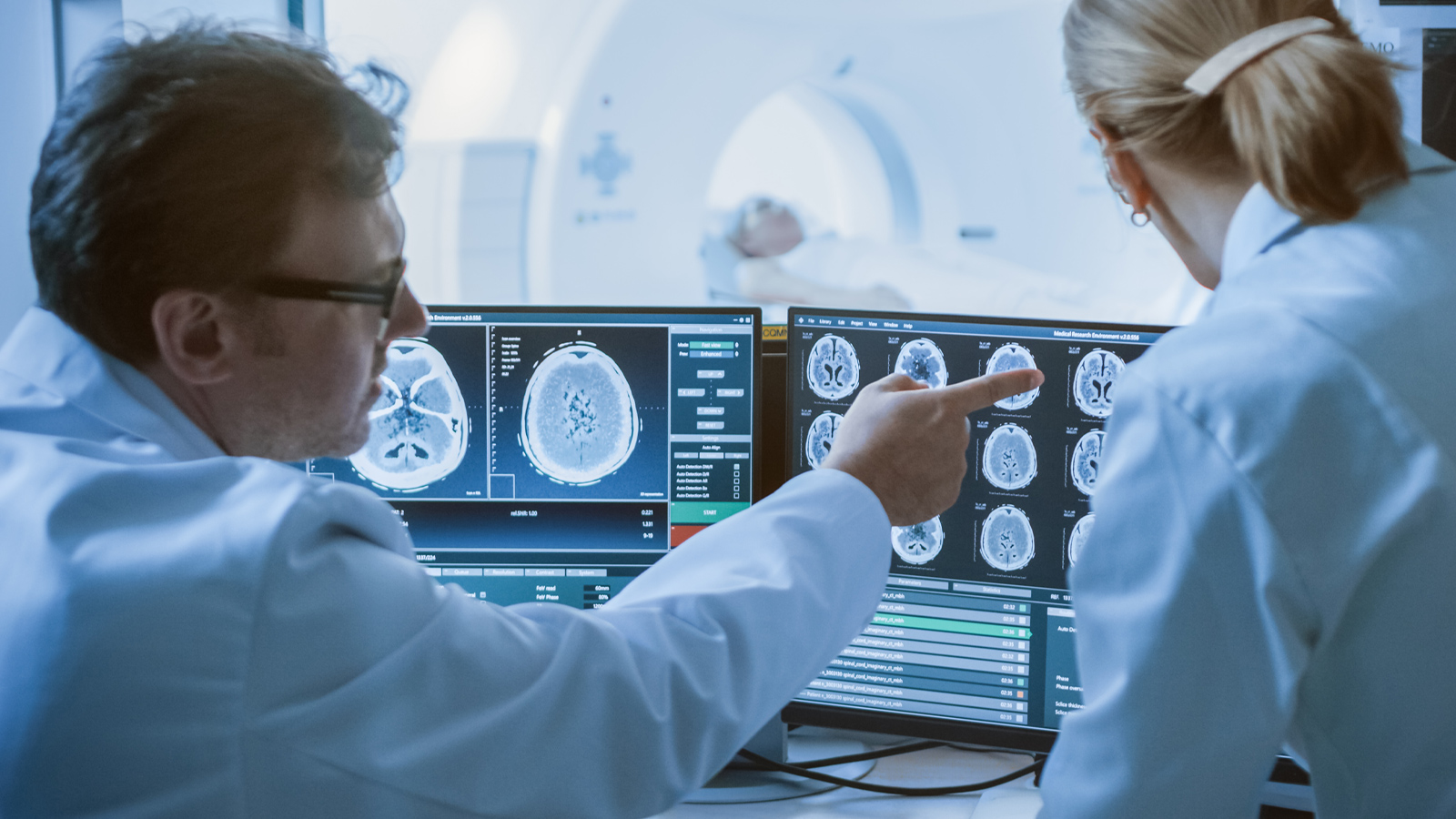 Nvidia rolls out AI platform across NHS hospitals
Nvidia rolls out AI platform across NHS hospitalsNews The platform ensures that patient data never leaves the hospital trust when an AI algorithm analyses medical records
By Zach Marzouk
-
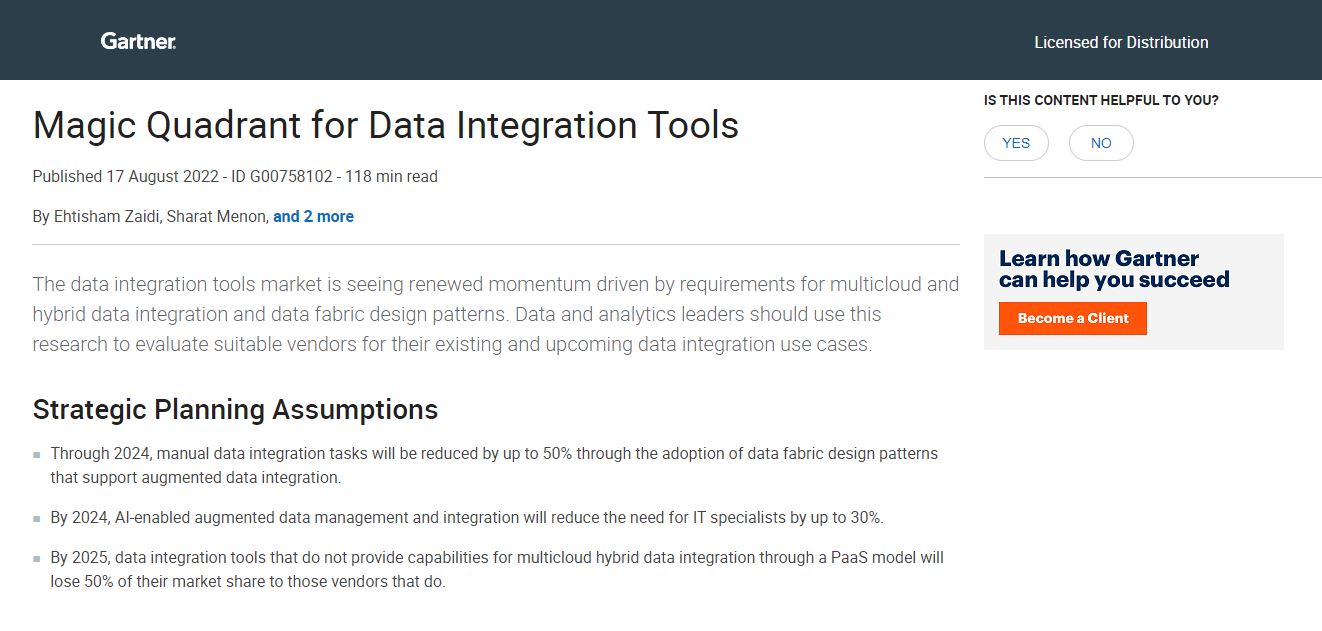 2022 Magic Quadrant for data integration tools
2022 Magic Quadrant for data integration toolsWhitepaper Using research to evaluate suitable vendors for their existing and upcoming data integration use cases
By ITPro